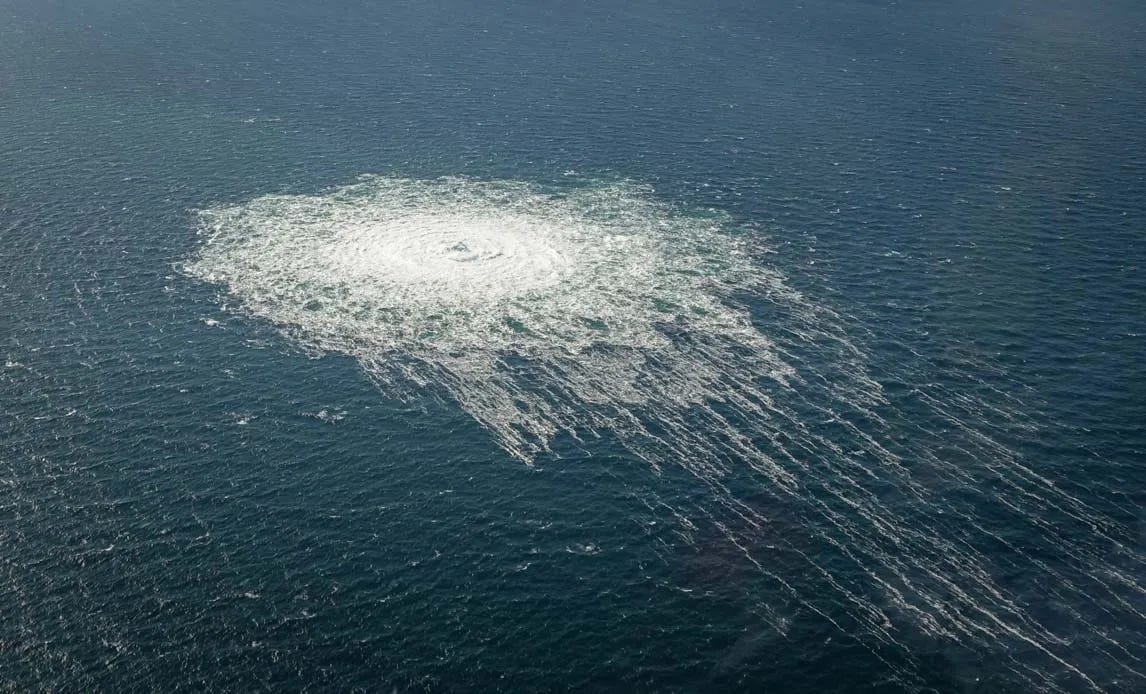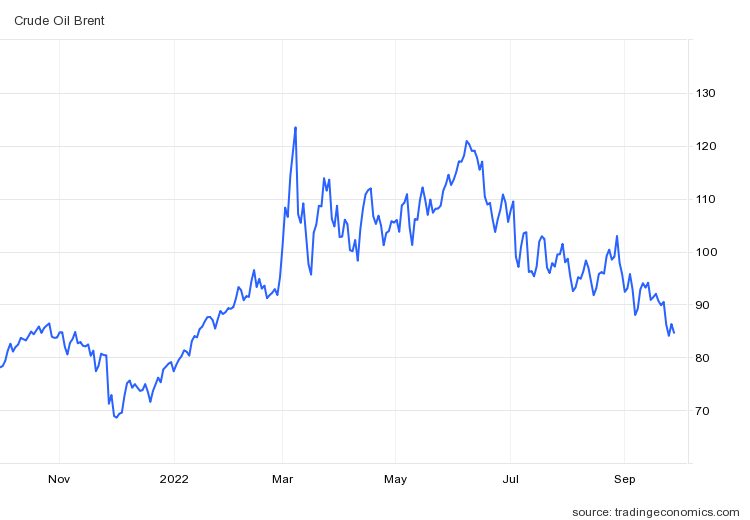Nord Stream Sabotage Is Not The SHTF Moment The Markets Are Expecting
It Could Be A Geopolitical SHTF Moment, However
In yesterday’s post, I examined the warning sign of the synchrononous market declines Monday, concluding that something dire was about to happen.
The coordinated bombings of the Nord Stream 1 and Nord Stream 2 pipelines near the Danish coastline does not look to be that “something”.
Whether this act of intentional sabotage—and potentially act of war—amounts to a geopolitical “something” indepdenent of the economic-oriented adverse event I believe yesterday’s market activity indicates is imminent remains to be seen.
What Is Known
Early Monday morning, the first of two large undersea blasts was observed by Swedish and Danish seismic monitoring stations.
The first explosion was recorded at 02:03 on the night of Monday and the second at 19:04 on Monday evening.
The warnings about the gas leaks came from the Maritime Administration at 1:52 p.m. and 8:41 p.m. on Monday, respectively, after ships detected bubbles on the surface.
SVT has obtained the coordinates of the measured explosions and they are in the same area where the gas leaks were registered.
As of this writing, this remains all that is definitively known about the blasts, and the resultant leaks. While this is clearly an act of sabotage, hard evidence identifying who specifically committed this act has yet to emerge.
This, of course, has not prevented theories and speculations from emerging on all sides—and several of those theories are at least plausible. Without evidence, of course, these theories must remain simply theories. None can be excluded, and none can be considered proven.
Economic Impacts
The most immediate impacts from the sabotage have so far been fairly muted, due in large part to the fact that Nord Stream 2 had not been placed in production and gas flows through Nord Stream 1 had been shut off by Russia last month.
Nord Stream 1, which runs under the Baltic Sea to supply Germany and others, had been due to resume operating after a three-day halt for maintenance on Saturday at 0100 GMT.
But Gazprom, the state-controlled firm with a monopoly on Russian gas exports via pipeline, said on Friday it could no longer provide a timefrme for restarting deliveries after finding an oil leak that meant a pipeline turbine could not run safely.
Moscow has blamed sanctions, imposed by the West after Russia invaded Ukraine, for hampering routine operations and maintenance of Nord Stream 1. Brussels says this is a pretext and Russia is using gas as an economic weapon to retaliate.
Thus, while the damage to Nord Stream 1 means no gas can flow through until repairs are made, the lack of availability of gas through that pipeline changes little in the current situation, as gas was already not available through Nord Stream 1.
Still, the prospect of no gas flowing any time soon, regardless of the state of sanctions against Russia, was enough to send the price of Dutch TTF gas as much as 12% higher during the trading day, before settling at a 10% price increase on the day.
US natural gas prices were largely unaffected.
The price of Brent crude oil was also largely unaffected.
Given that Europe has already priced in a lack of Russian natural gas, the loss of the Nord Stream 1 pipeline should sanctions against Russia ever get lifted—the essential impact of the sabotage—looks to have little if any immediate economic impact on Europe. It does not appear the sabotage by itself will alter the recent downward trajectory of natural gas prices in Europe.
Did America Destroy Nord Stream?
As tends to be the case when hard evidence is lacking, theories on who is behind the Nord Stream sabotage abound, with the US the prime suspect for many.
However, such theories must also account for apparent CIA warnings of just such an attack to Germany over the summer. While such warnings do not automatically discredit these theories, they are one additional hurdle the US-as-saboteur theories must get over.
At the same time, these theories gain currency when public figures like Polish MEP Radek Sikorksi tweet out gratitude to the USA for the destruction of the pipelines.
The political ramifications of such a tweet was something Russian Foreign Ministry Official Maria Zakharova was quick to highlight on her Telegram Channel, which was then picked up by Russian media site RBC:
The gratitude of the former Polish Foreign Minister Radoslaw Sikorski to the United States for damaging the Nord Stream can be interpreted as an official statement about the terrorist attack. Maria Zakharova, official representative of the Russian Foreign Ministry, wrote about this in her telegram channel .
“Polish MEP, former Foreign Minister Radek Sikorski thanked the United States on Twitter for today's accident on Russian gas pipelines. Is this an official statement about a terrorist attack? she wrote.
However, Sikorksi’s tweet is not an official statement, nor is it an actual admission or even firm proof of anything except the obvious: it is certainly well within US capabilities to orchestrate this sabotage. It is within the capabilities of a number of countries, including Russia and Poland. The reported facts of the sabotage do not at this time exonerate anyone, nor immediately incriminate anyone.
This much is certain: “Someone” blew up both Nord Stream pipelines, rendering them both unusable for an indeterminate period of time. This act of sabotage has not altered the immediate natural gas supply situation for Europe, as neither was actually delivering gas to Europe at the time. Should the Russo-Ukrainian War reach a resolution and peace be established, leading to a lifting of the sanctions against Russia, the sabotage means that Russia’s capacity to restore all previous natural gas flows to Europe is diminished for quite an extended period of time. In this regard at least, the status quo ante is not a possible outcome either of the war or whatever peace initiatives finally succeed in ending the war.
Sadly, this also means that one incentive for achieving a quick peace is no longer present, and the most certain consequence of this sabotage is that the costly, bloody, war of attrition in Ukraine is going to continue for a bit longer. No one was killed in the sabotage, but thousands of Russian and Ukrainian troops are likely to be killed as a consequence.
Was that the point of the sabotage? At this time, we can suspect, and we can theorize, but it is impossible to actually know.











